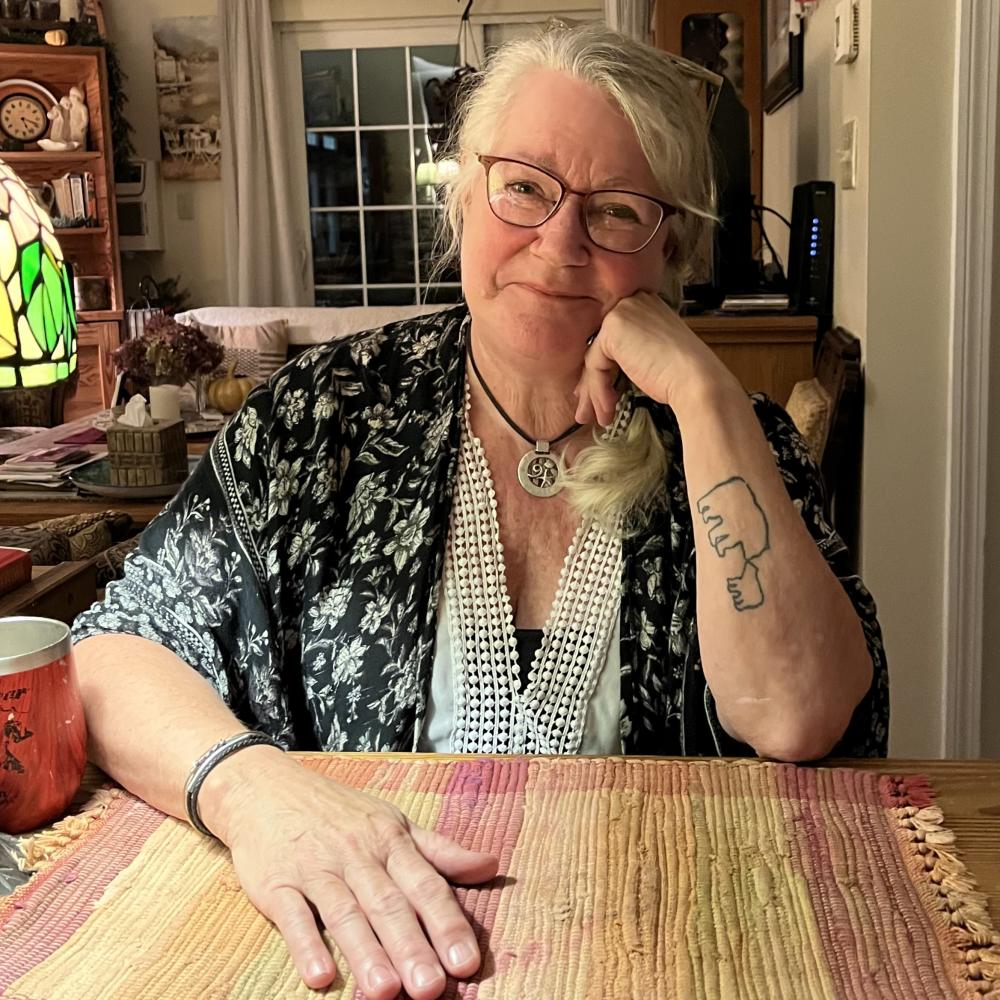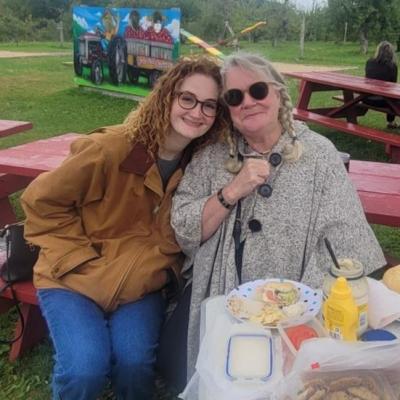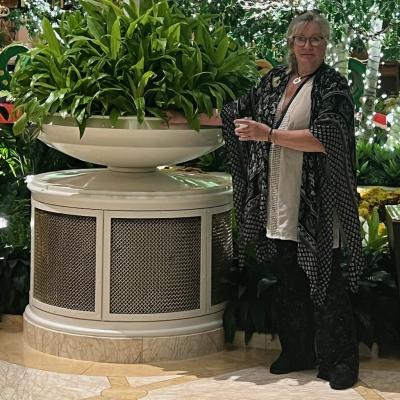Blind for years, Marion resident uses mindfulness to overcome
MARION — Two surgeons on either side of Deborah Greenslit’s face chiseled away at her eyeball.
With her head, arms and legs strapped down, Greenslit was alert.
The ophthalmologists removed, during the nearly two hour procedure, a white cataract from the right eye of Greenslit, a Marion resident. She’d get the same procedure for her other eye a couple months later.
The cataracts had made Greenslit gradually lose her vision until she was blind. But after the second procedure in July 2024, Greenslit, 68, could see again.
A retired psychotherapist, she said she doesn’t know how she would have coped and overcame the years of blindness without mindfulness — the mental concept of thinking in the present without judgement.
The vision problems began sometime around 2017. It started with what felt like water in her right eye. It happened slowly. Deborah Greenslit’s eye became blurry, like there was a film over it.
Greenslit found out she had a kind of cataract called a white cataract. Her left eye later experienced the same problem — the feeling of more and more water poured into the eye, a blurriness that got thicker.
For a time, Greenslit could still see and function with limitations, she said. Then she went to renew her driver’s license. It got rejected. Eventually, Greenslit wasn’t comfortable driving at all.
By about 2022, Greenslit became fully blind. She was a psychotherapist, a professor and a wellness nurse. She had run 30 marathons in her life. She was a writer and liked to cook, paint and take photographs.
“All the things that were really imperative for me, for my balance, were basically taken away,” she said.
All she could see were shadows. It felt like wearing the darkest pair of sunglasses and only being able to make out brightness. Everything else was gray, Greenslit said.
Greenslit remembered, when she was still working as a psychotherapist, not being able to see a patient’s face. She opened the door such that through the light, she could make out the shadows of the patient pointing with her hands, so she could at least try to get an idea of where the patient’s eyes were. It was nerve-wracking, she said
“I was slowly losing my ability to do just about everything,” Greenslit said.
She began to receive services from the Massachusetts Commission for the Blind. She had a medical escort. To do anything or go anywhere, Greenslit needed somebody else to help, an arm to hold onto. She became depressed, “trapped by the blindness,” she said.
“It’s just that sadness, that gray cloud that hangs over you,” Greenslit said. “Just a sadness, because you're basically slowly losing so many things that are important to you. It's like curling up in a ball.”
During the years of vision loss, Greenslit endured through mindfulness — the idea of paying attention in the moment with non-judgement, the “mind being full of whatever is present,” according to Greenslit.
Without the practice, she would have been clinging to the past, Greenslit said.
“It's already hard enough being blind, but if I'm just sitting here thinking and crying and mourning about what it used to be like, that's not going to help me move into acceptance,” she said.
Last year, Greenslit’s older brother died. With a medical escort, she had been traveling to Nantucket to take care of him. It represented another aspect of mindfulness for her, that nothing stays the same.
“The two things that people are often most afraid of is change, but change is incessant, or death, which is inevitable,” Greenslit said.
Eventually, Greenslit got clearance to undergo the treatments that would remove her white cataracts, which were like pieces of cement on her eyes. The surgeries were performed in May and July. She was awake during the procedures. She meditated and thought about family through them, she said.
Coming out of the second operation, Greenslit said she never saw colors so vibrant. It was like The Wizard of Oz, going from gray and white to over the rainbow.
“I felt like a little kid that wanted to run in some flower field or something,” she said. “It was amazing.”
Now, Greenslit leads two vision loss support groups. She thought she needed to give something back, she said.
The former leader of one of those groups, Elaine Coughlin, chose Greenslit to run it after her.
“There was something about her she had,” Coughlin said. “She knew what she was talking about, and she was very interested in it.”
Through her story, Greenslit said she wanted to give people hope. Many of those experiencing sight loss won’t be able to get their vision back like Greenslit did, but with support and care there is “still such hope,” she said.
Inside Greenslit’s Marion home hangs a banner with Chinese characters facing the front door. There’s three things that matter most in the end, the fabric reads: How well did you live, how well did you love and how well did you learn to let go.
“We're already in pain, but if we keep clinging to the past and we keep fearing the future, that's double pain,” Greenslit said.
















